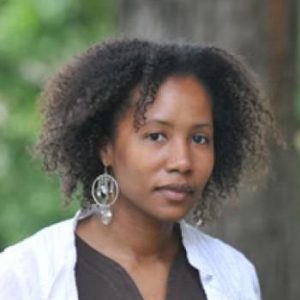
By Kathleen Sullivan, Stanford
In a pilot venture with SiriusXM Satellite Radio, Stanford is launching two talk programs hosted by faculty members: The Future of Everything, focused on engineering, science and technology, and School’s In, focused on teaching, learning and education.
Offering a singular experience for listeners, the one-hour programs invite a global audience to “listen in” as Stanford’s finest researchers and scholars tell stories, talk about research ideas and share insights from their latest scholarship.
The programs, which are designed as “living room conversations” aimed at a general audience, will begin broadcasting this month.
“We are excited to bring Stanford expertise, discovery and high-quality talk radio content to the entire nation on SiriusXM,” said Lisa Lapin, vice president for university communications. “Satellite radio will deliver Stanford directly to people not familiar with the depth of scholarship here, with compelling topics to help them better understand our contributions to society. And our faculty guarantee fun listening.”
The programs will air at 12 p.m. on alternating Saturdays, and will be replayed at 1 p.m. the following day.
The host of The Future of Everything is Russ B. Altman, a professor of bioengineering, which is a joint department in the schools of Engineering and Medicine. Altman is also a professor of medicine, genetics and biomedical data science. The program will explore how the research and technological advances of today will lead to the innovations of tomorrow. The first episode will air Feb. 11 and replay on Feb. 12.
The hosts of School’s In are Dan Schwartz, dean of Stanford Graduate School of Education, and Denise Pope, a senior lecturer at the school. The program will explore the ever-changing ways kids are learning, both in and out of school, and the latest research findings on learning and classroom trends. The first episode will air Feb. 18 and replay on Feb. 19.
Each Stanford Radio on SiriusXM program will feature two 30-minute segments. The hosts will introduce each segment in short monologues, and then engage the guests in 20-minute conversations. From time to time, the hosts will interview guests from industry and the public sector.
The programs will be broadcast on SiriusXM Insight, channel 121, which is devoted to informative and entertaining talk programs, including The New Yorker Radio Hour, Snap Judgment and Star Talk with Neil deGrasse Tyson.
People with subscriptions to SiriusXM Radio can listen to the Stanford programs in their cars, and streaming on their phones, tablets and computers. After the episodes air on SiriusXM, they will be available for free on a new Stanford Radio website.
The Future of Everything
Altman said he has long admired scientists who made science accessible to the public, such as Carl Sagan, an American astronomer who presented the 1980 television series, Cosmos: A Personal Voyage, which attracted a worldwide audience. Altman described his 25-year teaching career as his “biggest warm-up” for The Future of Everything.
“I think that public understanding of engineering and science is incredibly important, both to continue getting support for these fields, but also to inform people as they make decisions about lots of issues that are confronting our world today,” he said.
“In teaching, you get a really good sense of timing and of wrapping up ideas so they’re understandable by relative novices. Over the years I’ve learned that I’m comfortable making scientific ideas accessible inside and outside the classroom.”
Tom Kenny, interim dean at the School of Engineering, said that as the school developed the programming, one of its priorities was to showcase the interdisciplinary nature of engineering.
“We know that the best ideas usually come from bringing together individuals from a variety of backgrounds,” Kenny said. “So, in addition to increasing global understanding of engineering and science, it is important to ensure we are casting a wide net, and identifying and sharing research and ideas from throughout Stanford and beyond.”
The guest list for Altman’s first two episodes reflects his wide-ranging interest in engineering, science and technology:
- Audrey Bowden, an assistant professor of electrical engineering, will talk about an experimental home urinalysis device, based on a dipstick, black box and smartphone camera, that would allow patients to do accurate urine tests at home rather than going to a doctor for the test.
- David Camarillo, an assistant professor of bioengineering, will talk about recent advances in the field of concussion research and the quest to build a better, smarter bicycle helmet based on new discoveries about traumatic brain injuries.
- Jennifer Granick, director of civil liberties at the Stanford Center for Internet and Society at Stanford Law School, will talk about cybersecurity. Granick is the author of the award-winning 2017 book American Spies: Modern Surveillance, Why You Should Care and What to Do About It.
- Marc L. Salit, an adjunct professor of bioengineering and leader of the Genome in a Bottle project of the National Institute of Standards and Technology, will talk about efforts to create super-accurate measurements of the human genome.








